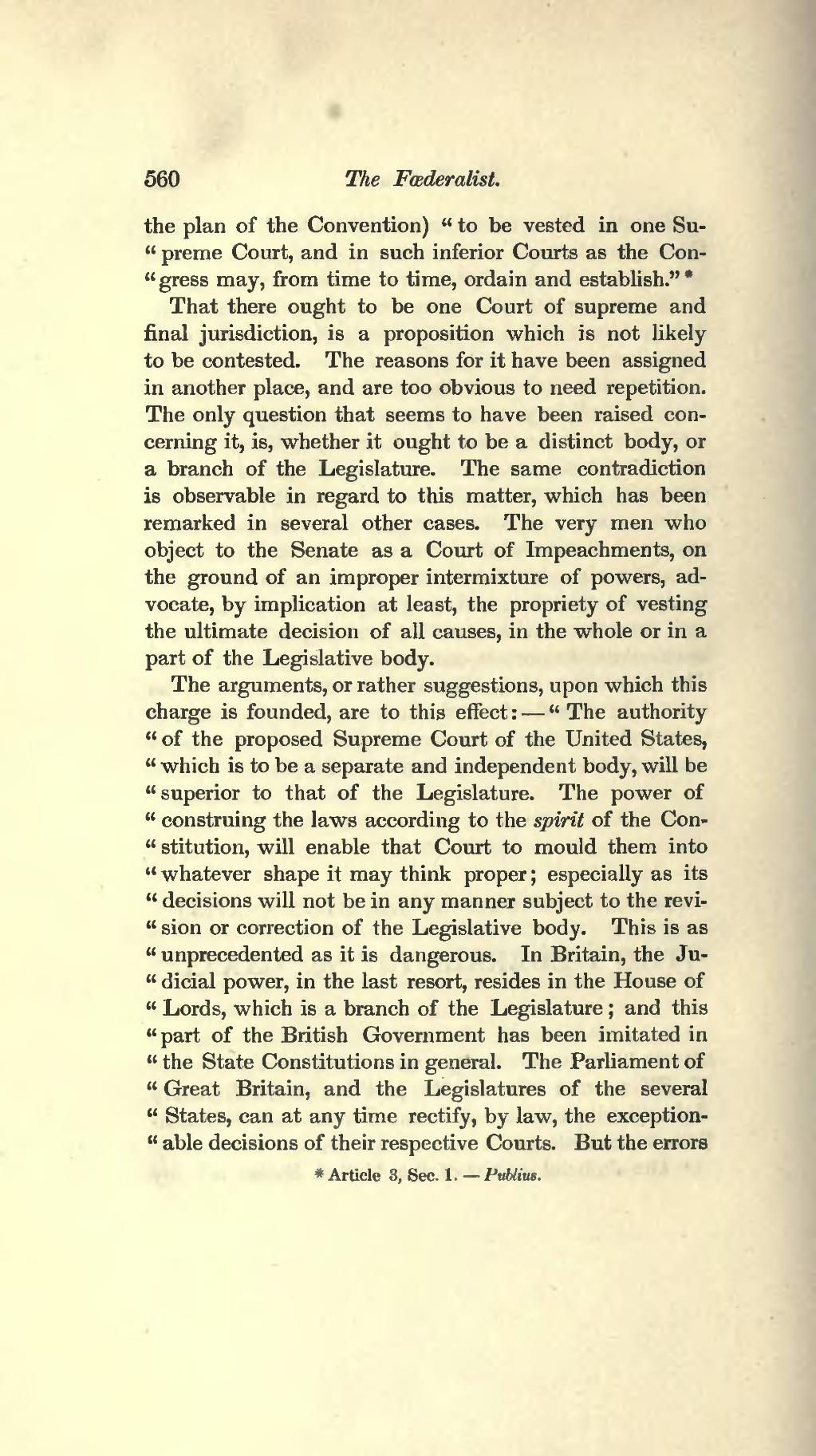the plan of the Convention) "to be vested in one Supreme Court, and in such inferior Courts as the Congress may, from time to time, ordain and establish."[1]
That there ought to be one Court of supreme and final jurisdiction, is a proposition which is not likely to be contested. The reasons for it have been assigned in another place, and are too obvious to need repetition. The only question that seems to have been raised concerning it, is, whether it ought to be a distinct body, or a branch of the Legislature. The same contradiction is observable in regard to this matter, which has been remarked in several other cases. The very men who object to the Senate as a Court of Impeachments, on the ground of an improper intermixture of powers, advocate, by implication at least, the propriety of vesting the ultimate decision of all causes, in the whole or in a part of the Legislative body.
The arguments, or rather suggestions, upon which this charge is founded, are to this effect:—"The authority of the proposed Supreme Court of the United States, which is to be a separate and independent body, will be superior to that of the Legislature. The power of construing the laws according to the spirit of the Constitution, will enable that Court to mould them into whatever shape it may think proper; especially as its decisions will not be in any manner subject to the revision or correction of the Legislative body. This is as unprecedented as it is dangerous. In Britain, the Judicial power, in the last resort, resides in the House of Lords, which is a branch of the Legislature; and this part of the British Government has been imitated in the State Constitutions in general. The Parliament of Great Britain, and the Legislatures of the several States, can at any time rectify, by law, the exceptionable decisions of their respective Courts. But the errors
- ↑ Article 3, Sec. 1.—Publius.

